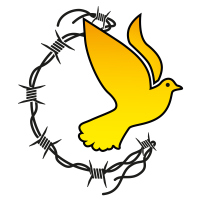-
Advocacy Theme
-
Tags
- Abortion
- Adoption
- Caregiving
- CEDAW
- Disability
- Domestic Violence
- Domestic Workers
- Harassment
- Healthcare
- Housing
- International/Regional Work
- Maintenance
- Media
- Migrant Spouses
- Migrant Workers
- Muslim Law
- National budget
- Parental Leave
- Parenthood
- Polygamy
- Population
- Race and religion
- Sexual Violence
- Sexuality Education
- Single Parents
- Social Support
- Sterilisation
- Women's Charter
Preventing human trafficking in Singapore
October 29th, 2014 | Migration and Trafficking, News
Singapore Member of Parliament Christopher De Souza has proposed a Private Member’s Bill to combat human trafficking, to be presented in parliament in November 2014.
 In response, six non-governmental organisations – AWARE, HOME, MARUAH, Project X, the Singapore Committee for UN Women, and TWC2 – have jointly organised the StopTraffickingSG campaign to urge the government to adopt a victim-centred approach in the drafting of the Bill on Prevention of Human Trafficking. The campaign will submit a parliamentary petition for victims’ rights to be protected under this Bill.
In response, six non-governmental organisations – AWARE, HOME, MARUAH, Project X, the Singapore Committee for UN Women, and TWC2 – have jointly organised the StopTraffickingSG campaign to urge the government to adopt a victim-centred approach in the drafting of the Bill on Prevention of Human Trafficking. The campaign will submit a parliamentary petition for victims’ rights to be protected under this Bill.
The campaign’s recommendations
While the Bill against human trafficking covers many aspects, it is not comprehensive. In particular, the protection and assistance offered to victims by this Bill are not adequate. Several of the organisations in the StopTraffickingSG campaign offer direct services to trafficked persons. We make the following recommendations based on this experience.
For victims:
First, clearer processes are needed to properly identify victims so that non-trafficked migrant workers are not inadvertently caught up in state responses to victims, and that state agents fail to recognise trafficked victims.
Second, the Bill should explicitly prohibit the detention of trafficked victims, as some existing shelters for trafficked victims are known to restrict victims’ freedom of movement.
Third, the Bill should expand general protection granted to trafficked victims and witnesses, in particular strengthening protection for witnesses who may face intimidation and retaliation in Singapore and their home countries, expand court protections beyond those granted to sexually exploited victims, address particular protections that may be required by child victims, and strengthen mechanisms for the provision of information to victims about their cases.
Fourth, victims require assistance as well as protection. Necessary forms of assistance include accommodation, medical care, confidential counselling, work opportunities, information, and translation and interpretation. Such services should be extended to trafficked victims’ dependants where appropriate. StopTraffickingSG would additionally like to query the role of the Director of Social Welfare in providing these services (where provided for in the Bill), given that her legal mandate currently extends only to persons under the age of 16.
Lastly, further clarifications are needed as to victims’ immigration status while their cases are being processed. Currently, trafficking victims are granted a Special Pass. However, there is a lot of discretion and uncertainty as to in which cases such passes are extended. Moreover, there is little provision for victims’ relocation and repatriation. Finally, it is suggested that victims be allowed to experience a period of recovery and reflection before having to decide if they do want to embark on the lengthy and strenuous process of pursuing their case through the criminal justice system.
Policing:
StopTraffickingSG is concerned about the huge extension of discretionary powers to police and non-police enforcement officers. According to this Bill, police and non-police enforcement officers are able to arrest and forcibly gain entry to premises without warrant, and are to be armed with batons and accoutrements “as are necessary”. This may result in the secondary traumatisation of vulnerable victims of trafficking. StopTraffickingSG believes that Part 3 of the proposed Bill should be deleted altogether as the current provisions under the Criminal Procedures Code would suffice.
Definitions:
Several key concepts in this Bill are not defined. For example, there is no definition of forced labour or deception in Part 1 of the Bill, although they are central to a thorough understanding of trafficking in persons.



